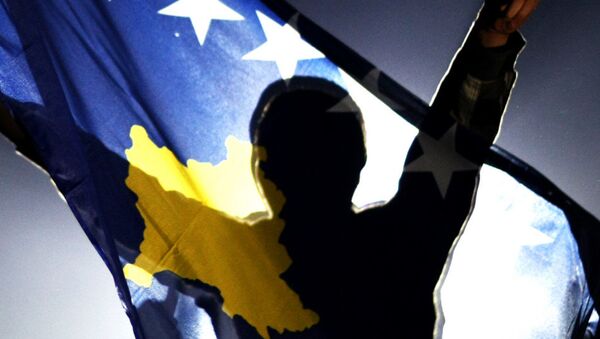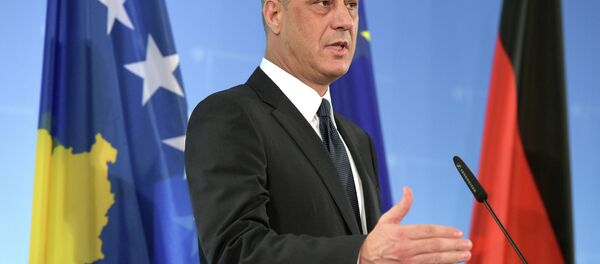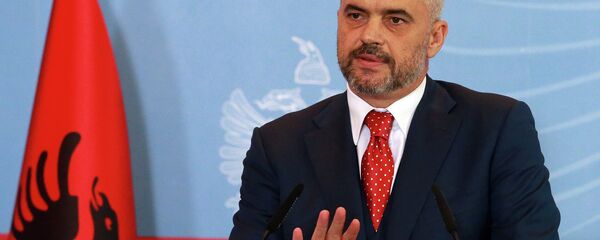In a further sign of the continuing ethnic tensions in the Balkans, Macedonian police said that about 40 armed rebels took officers hostage overnight at a police post in Macedonia's north, close to Kosovo's border.
The men eventually left the area after a number of hours.
Macedonian Interior Ministry official Ivo Kotevski said the gunmen, who claimed to be part of the Kosovo Liberation Army (KLA), had told the hostages:
"We will have an Albanian state."
"This morning, Macedonian state institutions were the target of a terrorist act," Kotevski said.
Gunmen claiming to be with the #Kosovo Liberation Army take police hostage in #Macedonia, demand Albanian state: http://t.co/v5m3IkF6Wz
— Alejandro Alvarez (@aletweetsnews) April 21, 2015
The attack has been seen as another point of tension in the relationship between ethnic groups in the country, and follows the conflict that erupted in the early 2000s, when Macedonian national security forces fought against rebel insurgents who were demanding greater rights for Macedonia's significant Albanian minority.
Fears of Albanian Expansionism
The call for the creation of an Albanian state in Northern Macedonia has heightened concerns across the former Yugoslavian republics about any potential Albanian expansionist plans.
Earlier this month, Serbian officials accused Albanian Prime Minister Edi Rama of "inciting instability" and "banging war drums," after he claimed that the unification of his country with the former Serbian province of Kosovo — which has a majority ethnic Albanian population — was "inevitable."
The idea of a so-called 'Greater Albania,' which incorporates parts of Macedonia, Serbia, Montenegro and even Greece, has been a long-held fear for many countries within the Balkans, despite Albanian officials strongly denying that they are pursuing any such plans.
Ongoing Balkan Tension — A Legacy of Western Involvement?
Although there have been tensions and conflicts between various ethnic groups in the Balkans for many centuries, many commentators point to western involvement in the late 90s as a key destabilizing factor that is continuing to hinder relations in the region today.
Many aggrieved parties in the conflict believe that NATO officials, and in particular the US and Britain, weren't acting impartially when supporting the Kosovar cause, which culminated in the 1999 bombing of Belgrade.
Even the Kosovo Report looking into NATO's involvement in the war found that "the NATO military intervention was illegal, but legitimate."
The actions of NATO during the 1998-1999 war between the then Yugoslav government army and the KLA has been widely debated, and has thought to have further alienated Belgrade from the West, therefore acting as a contributing factor towards ongoing ethnic tensions in the region.




